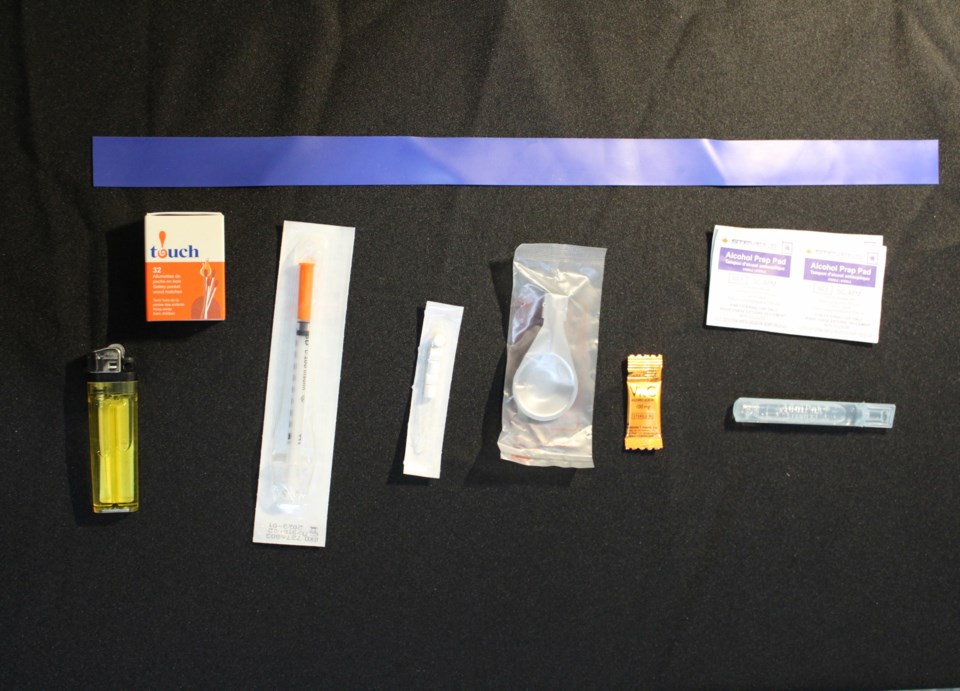Will Barrie ever get a supervised consumption site?
It is coming up to three years since Barrie city council, in an 8-2 vote, endorsed the Innisfil Street location for such a facility.
A supervised consumption site (SCS) provides a safe space for people to bring their own drugs to use. Trained staff is on hand to prevent accidental overdoses, check the drugs for safety and offer guidance should the drug user want treatment.
The holdup in Barrie has been provincial funding. For some reason, a government that introduced the Get It Done Act earlier this year has chosen to sit on its hands on this issue despite the fact, as a University of Victoria study put it, there is “wealth of evidence” showing supervised consumption sites save lives.
In 2022, the last year for which I was able to find figures, there were 7,328 overdose deaths across Canada. About 60 of those were in Barrie, which is more than one per week.
Meanwhile, Health Canada reports there were 36,272 overdoses at consumption sites across the country between March 2020 and October 2023. There wasn’t a single death.
Still, there are people who vehemently oppose the ideas of an SCS.
They often use the following arguments:
“We should focus on treatment.”
That argument assumes we can’t do numerous things at the same time. The Simcoe Muskoka Drug Strategy, a partnership of agencies, organizations and individuals working together to combat the drug toxicity crisis, stresses there are five action ‘pillars’ needed. Those include prevention, treatment, harm reduction, enforcement, and emergency management.
You aren’t being serious about tackling the problem if you abandon one pillar. Would anyone argue we should ignore the manufacturing and importing of deadly drugs to focus on treatment?
“We shouldn’t encourage drug use.”
I doubt there is any credible study that shows creating a safe place to use drugs makes people decide to start using them. What is true is drug addiction is incredibly hard to break and the drugs circulating today can be incredibly deadly. We should do everything we can to keep people alive while they are trapped in a drug dependency.
“Only some people will use the SCS.”
That’s true. And only some people will use cancer treatments or kidney dialysis. It doesn’t mean we shouldn’t offer them.
“The SCS will destroy the neighbourhood.”
There have been problems around some facilities, highlighted by the death of a 44-year-old woman who was hit by a stray bullet after a gun fight broke out outside an SCS in Toronto last spring.
That prompted the province to start a review of the sites, including the effect on the surrounding community. A provincial minister has since suggested there might be a need for an increase in staff, including security, something I fully support.
I have never been crazy about the site at 11 Innisfil St., but the committee charged with finding a location didn’t have a lot of choice. What is important is we make the chosen site work.
Other cities have shown it can be done. Guelph, which is often used for comparison purposes with Barrie, has had an SCS since 2018. An online search of news articles finds no negative ones about the SCS. In fact, it has even drawn praise from businesses in the area.
I’ll leave the last word to Guelph Mayor Cam Guthrie, who wrote a letter to Barrie city council when the matter was first being debated in 2019. He admitted to doing a “180-degree turnaround” on his view of such facilities since one arrived in his community.
Here’s what he said: “People are getting help to lift themselves out of addictions and other related health concerns. Lives are being saved. Criminal activity is not being ignored. Crime in the neighbourhood hasn’t skyrocketed. Emergency room departments are not being abused. Anecdotally, discarded needle complaints to my office in parks and laneways have decreased.”
Barry Ward is a veteran editor and journalist who also served on Barrie city council for 22 years. His column appears regularly on BradfordToday and InnisfilToday affiliate BarrieToday.



